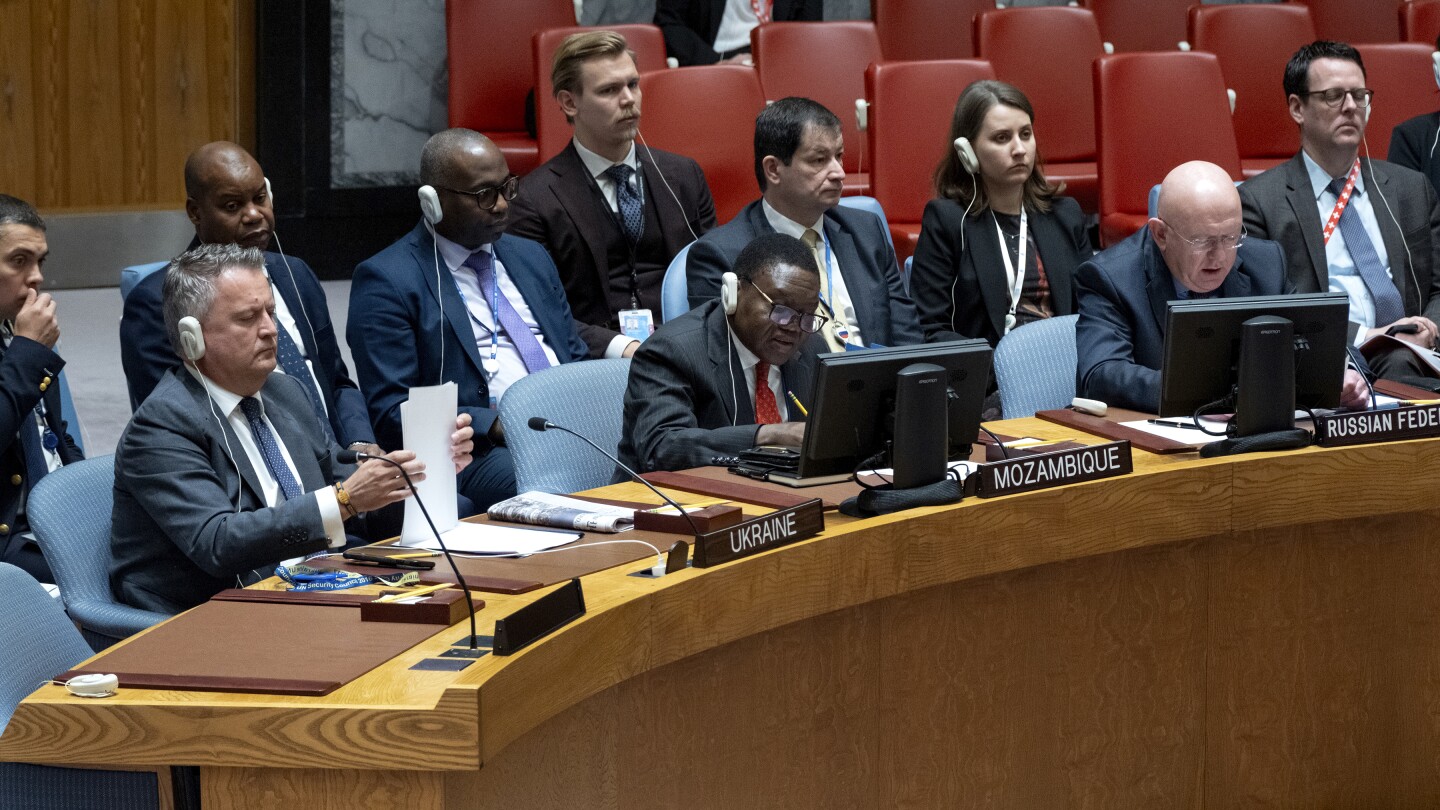UNITED NATIONS (AP) — Russia faces a tough fight to regain a seat in the U.N.’s premiere human rights body in Tuesday’s election in the General Assembly, which voted last year to suspend Moscow after its invasion of Ukraine.
The 193-member assembly will be electing 15 members to the Geneva-based Human Rights Council, with candidates put forward by the U.N.’s five regional groups.
Russia is competing against Albania and Bulgaria for two seats allotted to the East European regional group, and Moscow’s U.N. ambassador, Vassily Nebenzia, accused the United States on Monday of leading a campaign to prevent their return to the council.
“The main phobia of our American colleagues today is electing Russia to the Human Rights Council,” Nebenzia told a Security Council meeting called by Ukraine on last week’s strike by a Russian missile on a Ukrainian soldier’s wake in a small village that killed 52 people.
The United States and others have sent letters to many of the 193 members of the General Assembly urging a vote against Russia, according to diplomats. Felice Gaer, director of the American Jewish Committee’s Jacob Blaustein Institute for the Advancement of Human Rights, was among the non-government letter-writers also urging Russia’s defeat.
Albania’s U.N. Ambassador Ferit Hoxha also urged those who care about human rights and “the credibility of the Human Rights Council and its work” to oppose a country that kills innocent people, destroys civilian infrastructure, ports and grain silos “and then takes pride in doing so.”
U.S. deputy ambassador Robert Wood told the Security Council that Russia’s re-election to the Human Rights Council “while it openly continues to commit war crimes and other atrocities would be an ugly stain that would undermine the credibility of the institution and the United Nations.”
In April 2022, less than two months after Russia’s invasion of Ukraine, the General Assembly voted 93-24 with 58 abstentions on a U.S.-initiated resolution to suspend Russia from the Human Rights Council over allegations that its soldiers in Ukraine engaged in rights violations that the U.S. and Ukraine called war crimes.
In Tuesday’s election, the only other competitive race is in the Latin America and Caribbean group where Cuba, Brazil, the Dominican Republic and Peru are competing for three seats.
The other regional races are not competitive. The Asian group put up China, Japan, Kuwait and Indonesia for four seats. The African group chose Burundi, Malawi, Ghana and Ivory Coast for four seats. And the Western group has France and the Netherlands seeking the two seats.
Human Rights Watch said last week that Russia and China are unfit to serve on the Human Rights Council.
“Every day, Russia and China remind us by committing abuses on a massive scale that they should not be members of the U.N. Human Rights Council,” said Louis Charbonneau, U.N. director of Human Rights Watch.
The rights group said Russian forces in Ukraine continue to commit apparent war crimes, including unlawful attacks and crimes against humanity, torture and summary executions. President Vladimir Putin and his children’s rights commissioner are also sought by the International Criminal Court for the unlawful deportation of Ukrainian children, it said.
The New York-based watchdog said China’s rights record should also disqualify it from the Human Rights Council. It pointed to last year’s report by the office of the U.N. human rights commissioner which said China’s discriminatory detention of Uyghurs and other mostly Muslim ethnic groups in the western region of Xinjiang may constitute crimes against humanity.
The rights group said Cuba and Burundi have also committed systematic human rights violations, including harassment, arbitrary detention, and torture of dissidents, and don’t belong on the council.
The Geneva-based Human Rights Council was created in 2006 to replace a commission discredited because of some members’ poor rights records. But the new council soon came to face similar criticism, including that rights abusers sought seats to protect themselves and their allies.
The council reviews the human rights records of all countries periodically, appoints independent investigators to examine and report on issues like torture and situations in countries like North Korea and Iran. It also sends fact-finding missions to investigate rights violations, including in Ukraine.
Under the council’s rules, its 47 seats are allocated to regional groups to ensure geographical representation. Members are elected yearly by the General Assembly for staggered three-year terms that begin Jan. 1.
In last year’s election, Venezuela, South Korea and Afghanistan lost contested races, but countries including Vietnam and Sudan, which have been accused of having abysmal human rights records, won seats.

